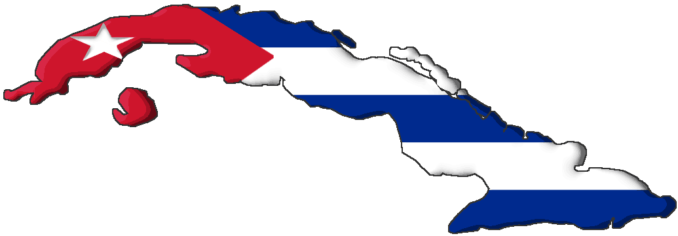Cuba answers charges of ‘harming diplomats’
 The U.S. government and corporate media unleashed a new propaganda offensive against socialist Cuba on Aug. 9 by making unsubstantiated charges that two U.S. and one Canadian diplomat in Cuba had lost hearing due to some devices being used against them earlier this year.
The U.S. government and corporate media unleashed a new propaganda offensive against socialist Cuba on Aug. 9 by making unsubstantiated charges that two U.S. and one Canadian diplomat in Cuba had lost hearing due to some devices being used against them earlier this year.
The media’s source was U.S. officials who “spoke on condition of anonymity,” a bizarre leak. (New York Times, Aug. 9) Also, two Cuban diplomats had been asked to leave the U.S. on May 23. The reports implied, without asserting it, that the Cuban government was somehow responsible for the ailments of the diplomats.
Cuban statement
On Aug. 9, the Cuban Ministry of Foreign Affairs responded, saying:
“On 17 February this year, the United States Embassy in Havana and the Department of State informed the Ministry of Foreign Affairs of the occurrence of some alleged incidents affecting some officials of that diplomatic mission and their families.
“Cuba took this issue with the utmost seriousness and acted expeditiously and professionally in order to clarify the facts of this situation, initiating a comprehensive, priority and urgent investigation on the indications of the highest level of the Cuban government. To this end, it conveyed to the United States Embassy the need for information-sharing and proposed to establish cooperation between the competent authorities of both countries.
“The Cuban authorities set up an inter-institutional expert committee for the analysis of the facts; expanded and reinforced the protection and security measures of the mission, its staff and diplomatic residences; and new channels were made available for direct communication between the Embassy and the Department of Diplomatic Security.
“In this context, on 23 May, the Department of State informed the Cuban Embassy in Washington of the decision that two Cuban diplomats leave the United States territory. This led to a protest by the Ministry of Foreign Affairs due to this unjustified and unsubstantiated decision.
“The Ministry of Foreign Affairs reaffirms that Cuba complies rigorously and seriously with all its obligations arising from the 1961 Vienna Convention on Diplomatic Relations in connection with the protection and inviolability of diplomatic agents and the premises of diplomatic missions.
“Our country’s impeccable track record in this area is recognized internationally and Cuba is universally considered as a safe destination for both visitors and foreign diplomats, including Americans.
“The Ministry categorically emphasizes that Cuba has never, nor would it ever, allow that the Cuban territory be used for any action against accredited diplomatic agents or their families, without exception. Moreover, it reiterates its willingness to cooperate in the clarification of this situation.”
The unauthorized U.S. officials implied that an acoustics device was used that caused damage, but they give no evidence of what occurred or of Cuba’s role.
Anti-Cuba rhetoric
On June 16, the current U.S. administration spewed out aggressive anti-Cuba rhetoric in Miami, staged for the counterrevolutionary Cubans who have been opposing the socialist government in Havana since they fled the anger of the Cuban masses in the years following the revolution. At the same time, the administration faces Cuban-Americans and business sectors who prefer more nearly normal relations with Cuba.
Since Dec. 17, 2014, steps toward normalizing state to state relations dialed down overt U.S. hostility to the socialist project just 90 miles from Florida. The intent to restore capitalism and undo Cuba’s planned economy has not changed, nor has the economic, financial and commercial blockade been significantly eased.
The Guantánamo Naval Base still occupies 45 square miles of Cuban sovereign territory as it has since 1898, when U.S. imperialism for the first time reached beyond the North American continent to conquer territory. Guantánamo is a symbol of the U.S. intention to dominate all of Latin America and the Caribbean. Look at the U.S.-led war against Bolivarian Venezuela, bolstered by full-court media lies.
There has been a change, though, in U.S.-Cuban relations. There are direct commercial flights with multiple U.S. airlines and airports. There are discussions in states from coast to coast exploring business exchanges with Cuba of agriculture products, pharmaceuticals and medical technology. This all has given many ordinary people in the U.S. a favorable view of Cuban reality.
Until this so far relatively short window, only the brave participants in travel challenges could learn about Cuba by going to Cuba.
There is a growing material interest in ending the blockade — from Pennsylvania farmers who now dump milk they can’t sell, from Gulf Coast longshore and port workers, from lung cancer patients or the one in three U.S. residents with diabetes or pre-diabetes who may fear amputation and who want access to Cuban medical advances in treating these diseases.
City councils and state legislatures are passing resolutions calling for the end to the blockade. For anyone who wants to stop or reverse the U.S. relationship with Cuba, the warmer people-to-people contact is a stumbling block.
U.S. weaponry
Those in the U.S. state apparatus who seem to be insinuating that Cuba is developing sonic weaponry should be reminded that in September 2009, the U.S. government used a new weapon against the people of Pittsburgh: the LRAD Sound Cannon.
Since 2009, the state has used this weapon in Ferguson, Mo.; in New York City; and in Standing Rock, N.D., against mass protests. LRAD was developed by the U.S. Navy in 2000. Plaintiffs in a lawsuit against the New York City Police Department for use of the device reported “they had developed migraines, sinus pain, dizziness, facial pressure and ringing in their ears,” something similar to what was alleged to happen in Havana.

